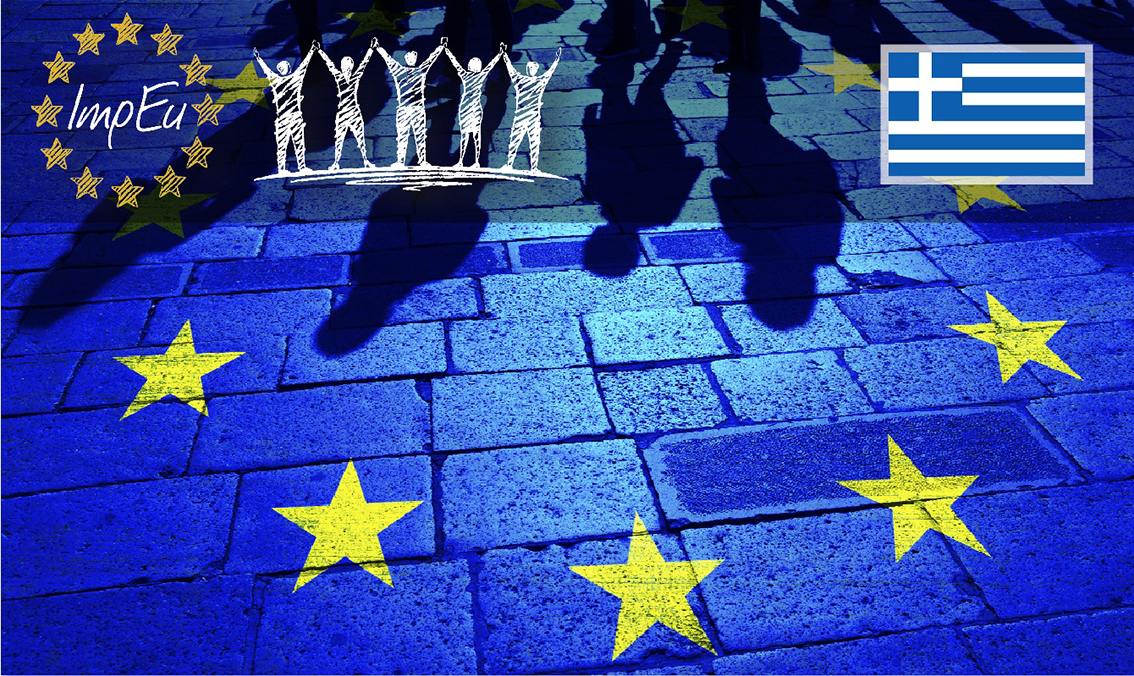About This Course
About this course
The Course Capacity-building on Inclusion Policies for Civil Servants integrates the fundamental theoretical aspects regarding EU mobile citizens’ rights that are connected with their integration in the host societies. The main aim of the course is to provide the learners (civil servants and relevant national, regional and local experts offering services to EU mobile citizens) with the knowledge that will enable them to better understand and therefore better serve the EU mobile citizens in their country.
View Course Syllabus
Module 1: Obstacles of EU citizens claiming their citizenship rights
Module 1 of the IMPEU Project online training course is offering to civil servants and relevant professionals and to anyone interested in inclusion policies addressed to EU mobile citizens - coming from different nations that are protecting and promoting the rights and welfare of EU mobile citizens - the opportunity to have an overview of the main barriers and obstacles that newcomers from other EU countries face when moving into another EU member state. Specific attention is given to the obstacles that are connected with the right to Free movement, the Social rights and the rights that refer to the Political participation. Moreover, some solutions are proposed, aiming to provide solutions to the aforementioned obstacles.
Module 2 – Best Practices on facilitating access to EU citizens’ rights
Module 2 aims to provide more concrete information regarding EU mobile citizens’ political rights, by stressing some statistical data that refer to EU mobile citizens’ political participation. This Module also provides knowledge on identifying the best practices that are related to the political inclusion policies. It also lists some good and bad practices that were actually implemented by some member states and can set a reference point, either for replicate or for avoiding them.
This Module provides also knowledge on the EU services that can be accessed by mobile EU citizens who need help or advice and it can help the civil servants and relevant national, regional and local experts offering services to EU mobile citizens to suggest the appropriate EU service to EU mobile citizens looking for help on their rights.
Module 3 - Q&A "Know Your Rights as European citizen”
Module 3 aims to provide knowledge on EU mobile citizens’ rights that derive from their citizenship status. Module 3 emphasizes on the following topics:
- Free movement & residence rights
- Healthcare
- Access to job market
- Participation to the Political life at local level
- EU elections
- Who supports the EU mobile citizens and what tools they have for claiming their rights?
- What an EU mobile citizen can do if his/her rights have been breached?
Module 3 aims to equip the civil servants and relevant national, regional and local experts offering services to EU mobile citizens with the legislation background and all the information that is required, so as they will offer their services in the most efficient way.
Module 4 - Civic and political rights of EU citizens living abroad
Module 4 of the training course aims to allow participants acquire the needed information on EU citizens’ civic and political rights. It also provides information on best practices and techniques about fostering EU mobile citizens’ inclusion in the host countries. Module 4 also describes some forms of EU citizens’ engagement in the host countries.
Module 5 - Intercultural Communication
Module 5 of the training course aims to allow participants to foster their understanding about concepts related to the Intercultural communication that is a prerequisite for the effective interaction between the civil servants and experts and the EU mobile citizens. It offers some suggestions aiming to develop better Cross-Cultural Communication Skills and lists the main challenges posed to communication of people with different cultural background.


